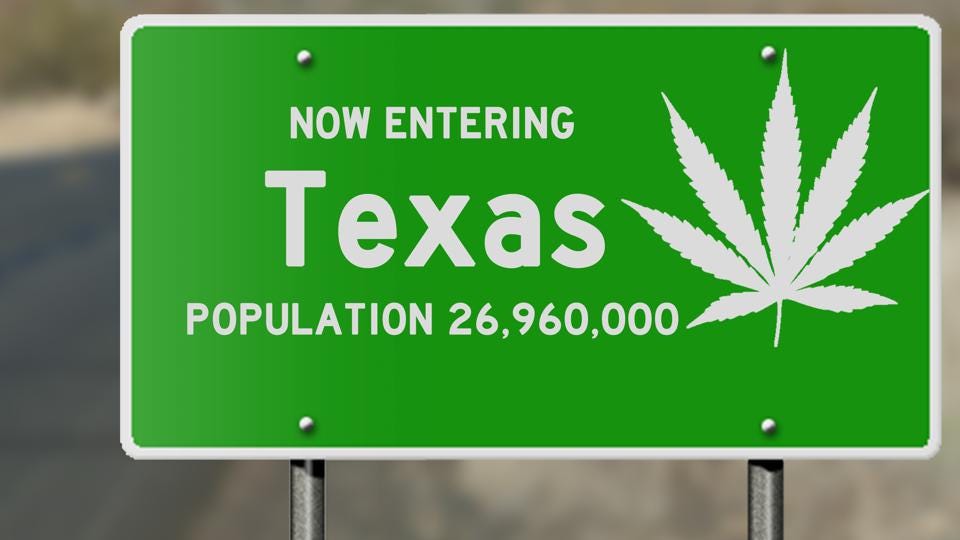
Texas Bill Would Allow Local Marijuana Legalization
Share
A Texas lawmaker has introduced a bill that would allow counties and municipalities to legalize recreational marijuana at the local level. The measure, House Bill 1937 from Democratic state Rep. Jessica González of Dallas, directs the Texas Commission of Licensing and Regulation to adopt all necessary rules for the administration and enforcement of the bill, including licensing, regulation, testing standards, and transportation.
“Twenty-one states in America have legalized cannabis, and twenty-seven states have decriminalized the use of cannabis. In a recent study, a majority of Texans supported some form of legalization of cannabis use,” González said in a statement. “While Texas has made progress with the Compassionate Use Act, we have been left behind on a potential revenue source that would increase investments in public education, stop unnecessary arrests for cannabis possession, and create jobs in our state. We should allow our local communities to make the best decision for themselves regarding cannabis legalization, and House Bill 1937 would allow that for adults 21 years or older.”
Adults Could Posses Up To 2.5 Ounces Of Pot
Under González’s bill, counties and municipalities in Texas would be given the authority to legalize recreational marijuana within their jurisdictions. If adopted by local governments, the measure allows adults 21 and older to possess up to 2.5 ounces of marijuana, including not more than 15 grams of cannabis concentrates. The bill also allows adults to possess up to 10 ounces of cannabis at home, although amounts greater than 2.5 ounces would have to be stored securely. Regulation of cannabis businesses would occur at the state level, with the Texas Commission of Licensing and Regulation responsible for adopting rules to implement the measure including licensing, regulation, testing standards, and transportation.
House Bill 1937 would also impose a 10% tax on cannabis products, with the revenue collected funding cannabis regulation, testing and quality control, and local oversight. Any remaining revenue collected would be reserved for a state fund that is the primary source of revenue for public school districts.
Bill Faces Uphill Battle
The legislation faces an uphill battle for approval in the state legislature, making the chances of its passage by lawmakers questionable at best. The bill would also have to be signed by Republican Gov. Greg Abbot, who opposes legalizing recreational marijuana but has indicated support for decriminalizing cannabis.
“One thing that I believe in, and I believe the state Legislature believes in, and that is prison and jail is a place for dangerous criminals who may harm others,” Abbott said while campaigning for re-election last year. “Small possession of marijuana is not the type of violation that we want to stockpile jails with.”
Shawn Hauser, a partner at Vicente Sederberg LLP and the co-chair of the law firm’s Hemp and Cannabinoids Department, says that although the fate of the legislation does not appear promising, its passage would allow local laws to reflect the views of most Texans.
“While unfortunately unlikely to advance this session, Rep. Gonzales’s bill is a thoughtful approach to achieve long-overdue cannabis reforms in Texas where outdated laws continue to criminalize cannabis use and send more than half a billion dollars of new tax revenue and hundreds of thousands of jobs to other states,” Hauser writes in an email. “This bill underscores the fact that a majority of Texans on both sides of the aisle support cannabis legalization, with 67% supporting legalizing for adult use and an overwhelming 82% supporting medical cannabis.”
“The fact that this bill is unlikely to get support of the legislature this session underscores how misaligned the state is from its voters and the 21 U.S. states who have recognized that prohibition doesn’t work,” adds Hauser. “The state should take a hard look at the public health, criminal justice, and economic benefits that come from many of the provisions of a responsible regulatory framework like HB 1937.”
Several cities in Texas have already taken steps to reform cannabis policy within their jurisdictions, with local governments in Dallas, Austin, El Paso and others all passing measures to decriminalize marijuana. And if given the chance, Dallas City Council members Chad West and Adam Bazaldua said they would vote to legalize cannabis under González’s bill.
“I would absolutely vote to legalize recreational cannabis use in the city of Dallas if given the opportunity to by the state,” Bazaldua told the Dallas Observer.
